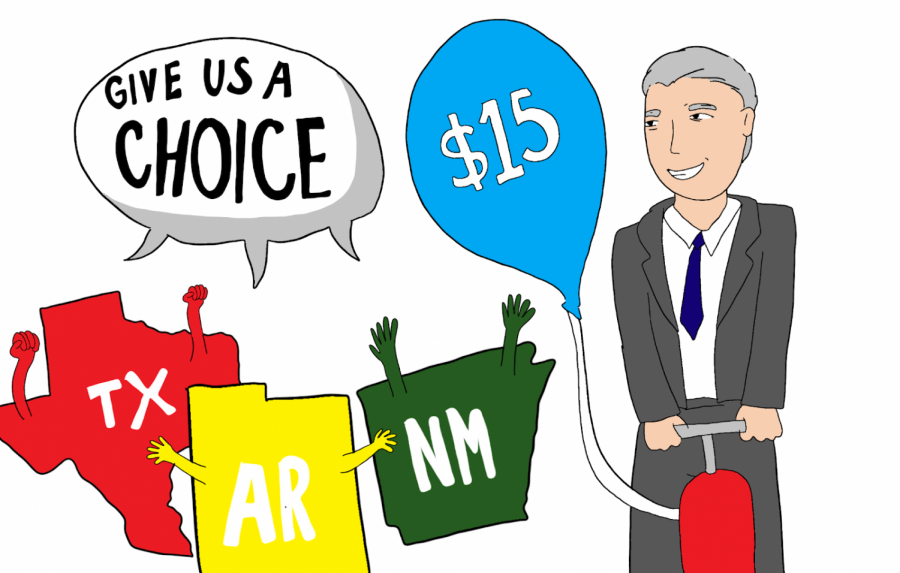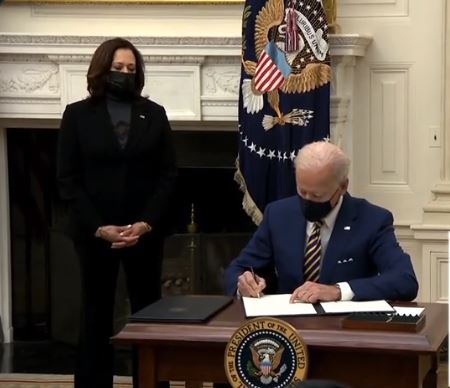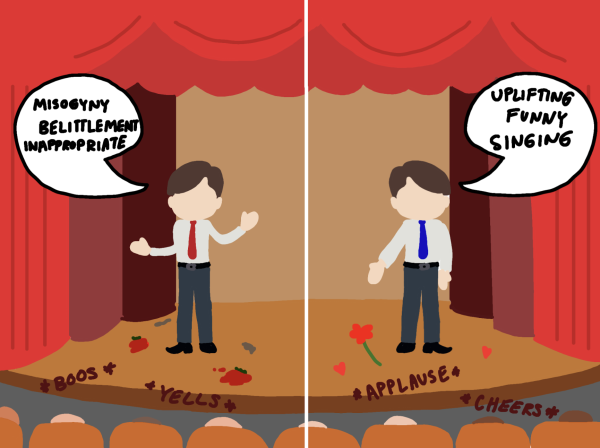Leave it to States and Cities to Set Minimum Wages
President Biden’s plan to raise the federal minimum wage to $15 an hour forces states to comply and applies pressure on landlords and employers by driving operating expenses up.
With President Biden signing an executive order that will raise federal contractors’ minimum wage to $15 an hour in 2022 — effectively expanding access to a $15 minimum wage for more Americans — the push to apply the wage nationwide fails to account for differences in the standards of living across states and municipalities. Congress should let state and local governments raise or maintain the current federal minimum wage of $7.25 based on each area’s standard of living.
“It doesn’t make much sense for a federal raise because a living wage in New York is going to be different than a living wage in rural Arkansas,” junior Oakley Scott, who works for minimum wage in California, said. “I believe that state determinations make sense because the cost of living in every state is different.”
I believe that state determinations make sense because the cost of living in every state is different.
— Oakley Scott
According to Investopedia, a federal raise to the minimum wage would mean that both rich and poor communities alike would experience a sudden hike in employer and rent expenses, putting a strain on businesses’ abilities to stay afloat.
Sen. John Thune (R-SD) spoke to Capitol Hill reporters on Feb. 24 after the Senate parliamentarian decided to omit the $15 minimum wage increase from the $1.9 trillion COVID-19 relief bill.“Businesses in small towns survive on narrow margins. Mandating a $15 minimum wage would put many of them out of business,” Thune said. “If you take a $15 minimum wage in South Dakota, where the minimum wage is $9.45, what you’re essentially telling those businesses is that you’re going to increase the amount of money that they have to pay their workers by over 50%.”
Allowing states to determine whether they should adhere to or raise the federal minimum wage grants greater authority to elected and appointed state officials to set fair wages. The $7.25 federal minimum wage is a “pretty good one-size-fits-all across industries and occupations,” according to Pew Research Center senior editor Drew DeSilver.
Currently, 29 states adhere to minimum wages higher than the $7.25 minimum, with Seattle adopting a minimum wage of $16.69 an hour for businesses employing more than 500 employees, exceeding Washington’s statewide minimum wage of $13.69 per hour. This is reflected in the areas’ GDP per capita, a measure of standard of living; Washington State’s GDP per capita was $69,761 in 2018, lagging behind the Seattle metro’s GDP per capita of $90,284.
If Congress does elect to take action regarding wages, it can instead take steps to bring minimum wage for workers receiving tips, which has sat at $2.13 in inflation-adjusted wages since 1991, closer to the current federal minimum wage of $7.25. It can also pass legislation mandating that these minimum wages begin following economic inflation — a measure nine states adopted on January 1, 2021.
Tipped workers in the seven states that have eliminated the tipped minimum wage account for almost 12 million workers as of January 2020, and their demographic experiences 3.8% lower poverty rates compared to tipped workers living in states being paid wages of $2.13. While the initiative to raise the tipped minimum wage would not alleviate poverty rates across the country in one fell swoop, remaining action to raise untipped minimum wages lie in the hands of states and cities.
More than doubling the minimum wage is an aggressive push that will harm Americans in the long-term. Instead, it is more beneficial to the entire nation that minimum wages be fairly set based on the city or state, with the only nationwide expectation being that wages follow economic inflation. Americans need to sustain a recovering economy, and a federal raise to the minimum wage will thwart these efforts.
Your donation will support the student journalists of Portola High School. Your contribution will allow us to purchase equipment and cover our annual website hosting costs.

Ryan Jung is the co-managing editor of the Portola Pilot. He is looking forward to working in the newsroom three times a week and communicating with Pilot...

Aadi Mehta is serving as a second-year Portola Pilot Staff Writer for the 2021-2022 school year. Aadi is excited to be able to work with new and returning...

Krisha Konchadi is the front page editor this year on the Portola Pilot. Along with editing and creating the front page, she loves making graphics and...
















